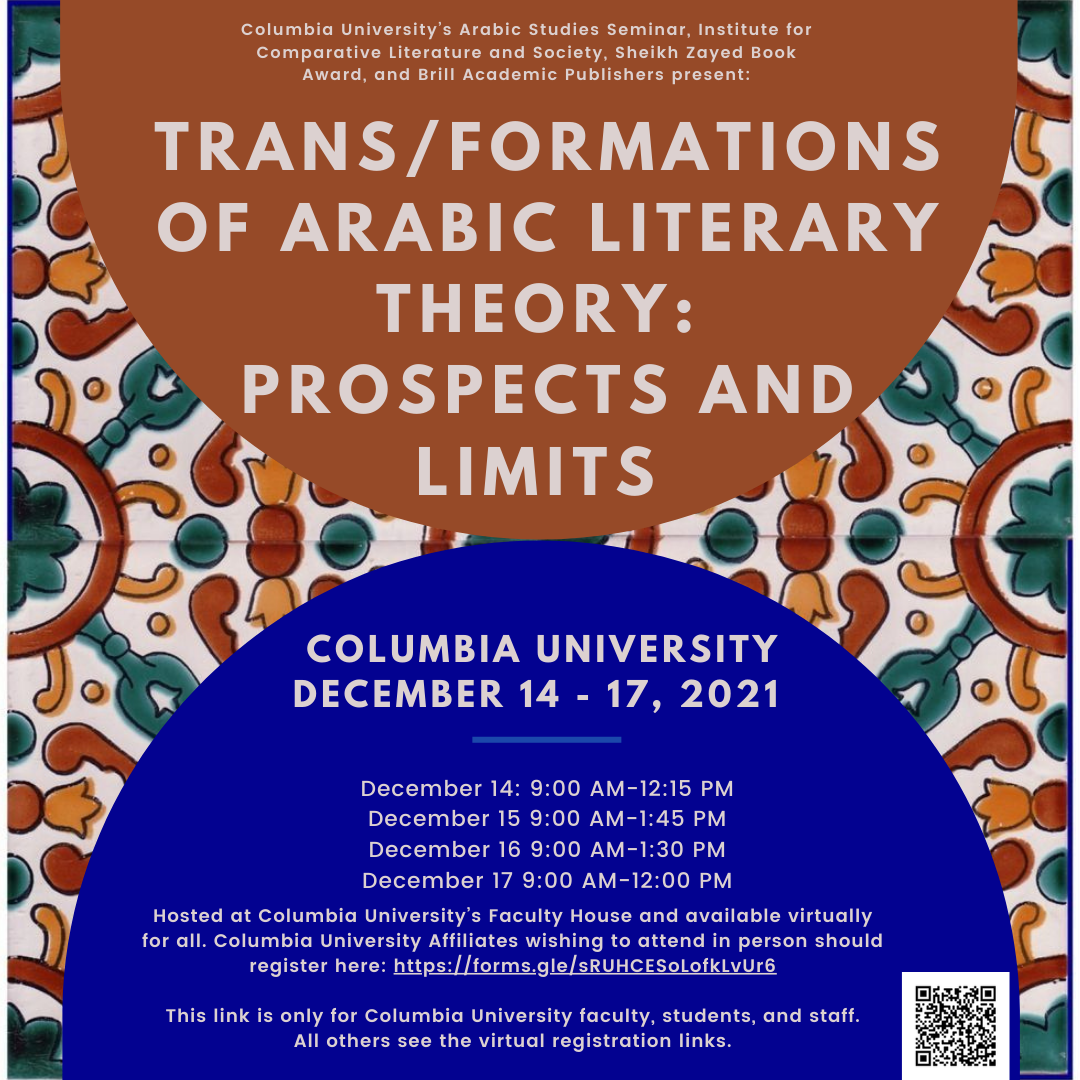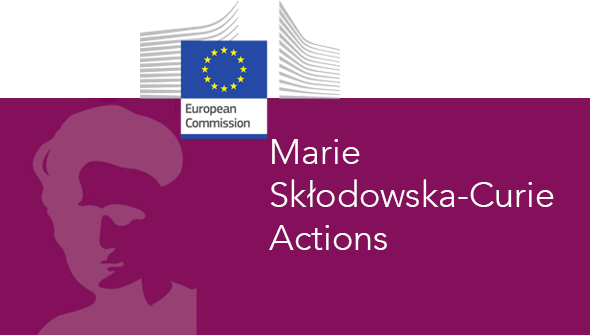XV Convegno SeSaMO Napoli 2022
Spiegare la crisi oltre il caos. Il Medio Oriente e Nord Africa nelle dinamiche globali
Napoli, 22-24 giugno 2022. Dipartimento Asia, Africa e Mediterraneo, Università degli Studi di Napoli ‘L’Orientale’
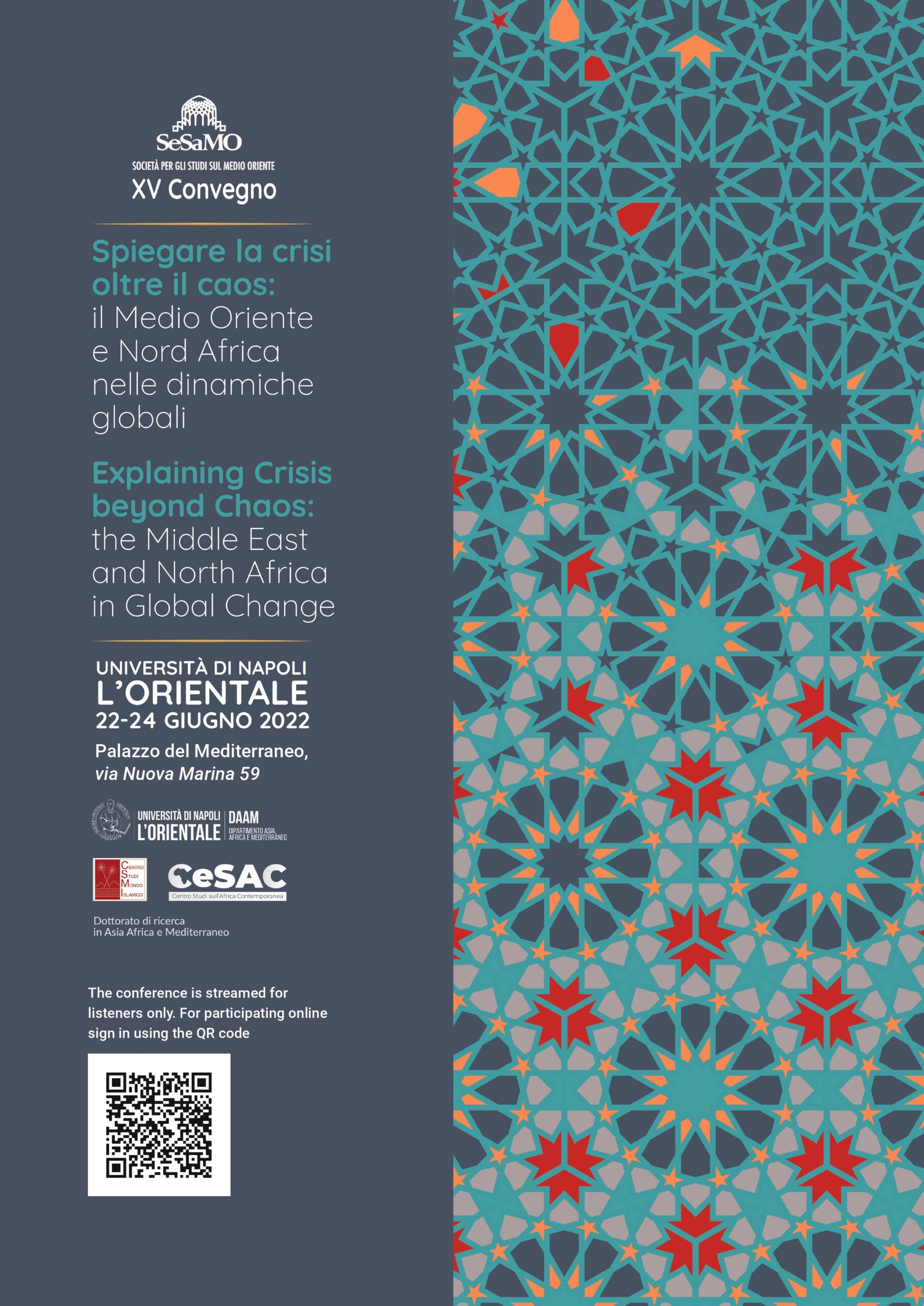
Webinar “Rethinking the nationhood in the Middle East: Jordan as a case study” – 6th session
18-06-2022, online
Webinar supported by Institut Sociétés en Mutation en Méditerranée (SoMuM), within the framework of the Najor@Mo project, “Repenser le national au Moyen-Orient : la Jordanie comme cas d’étude“. Organizers: Taher Labadi, Ifpo; Simon Mangon, Mesopolhis; Norig Neveu, Iremam.

Tuesday 28th of June, 3.00-5.00 (CET), online. Zoom Link / Meeting ID: 970 0518 3952 / Secret Code: 157982
“Placing Literature in Jordan: A Dialogue on Narrative, Representation, and Space”
This session aims to open a discussion regarding the interplay between literature, language, and place. At the crux of this session is a contention: that language and literature are not mere reflections of reality. Rather literature—as a medium—enacts social, material, and cultural effects, both shaping and being shaped by the locales and contexts in which it emerges and circulates. Literature, moreover, is not a static object but rather morphs as it moves between languages and landscapes. Thus, this session asks: What might we learn by tracing literature’s displacements and translations between varied geographies? How might this avenue of inquiry both illuminate and destabilize our taken-for-granted questions regarding cultural production and circulation in Jordan?
Speaker
Fernanda Fischione is a Marie Skłodowska-Curie research fellow carrying out TRANSECT, a project on the transnational circulation of Maghrebi national imaginaries through literature. She holds a Ph.D. from Sapienza University in Rome. Her area of expertise is modern and contemporary Arabic literature, with a special focus on space in literary criticism, namely Ghalib Halasa’s (1932-1989) treatment of narrative space. Alongside her academic activities, she is a literary translator from Arabic into Italian as well as the founder and editor of the magazine Arabpop: Rivista di arti e letterature contemporanee.
Moderators
Tariq Adely, George Washington University ; Pierre Delanghe, IEP Aix-en-Provence; Inès Delpuech, INALCO/ENS Ulm, Paris; Ismael Gil, University of Marburg.
Cantare la rivoluzione, musica e parole da un mondo arabo che cambia
04/05/2022, online
Università degli Studi di Milano, Scuola di Scienze della mediazione linguistica e culturale, Cultura araba II (prof. Caterina Roggero)
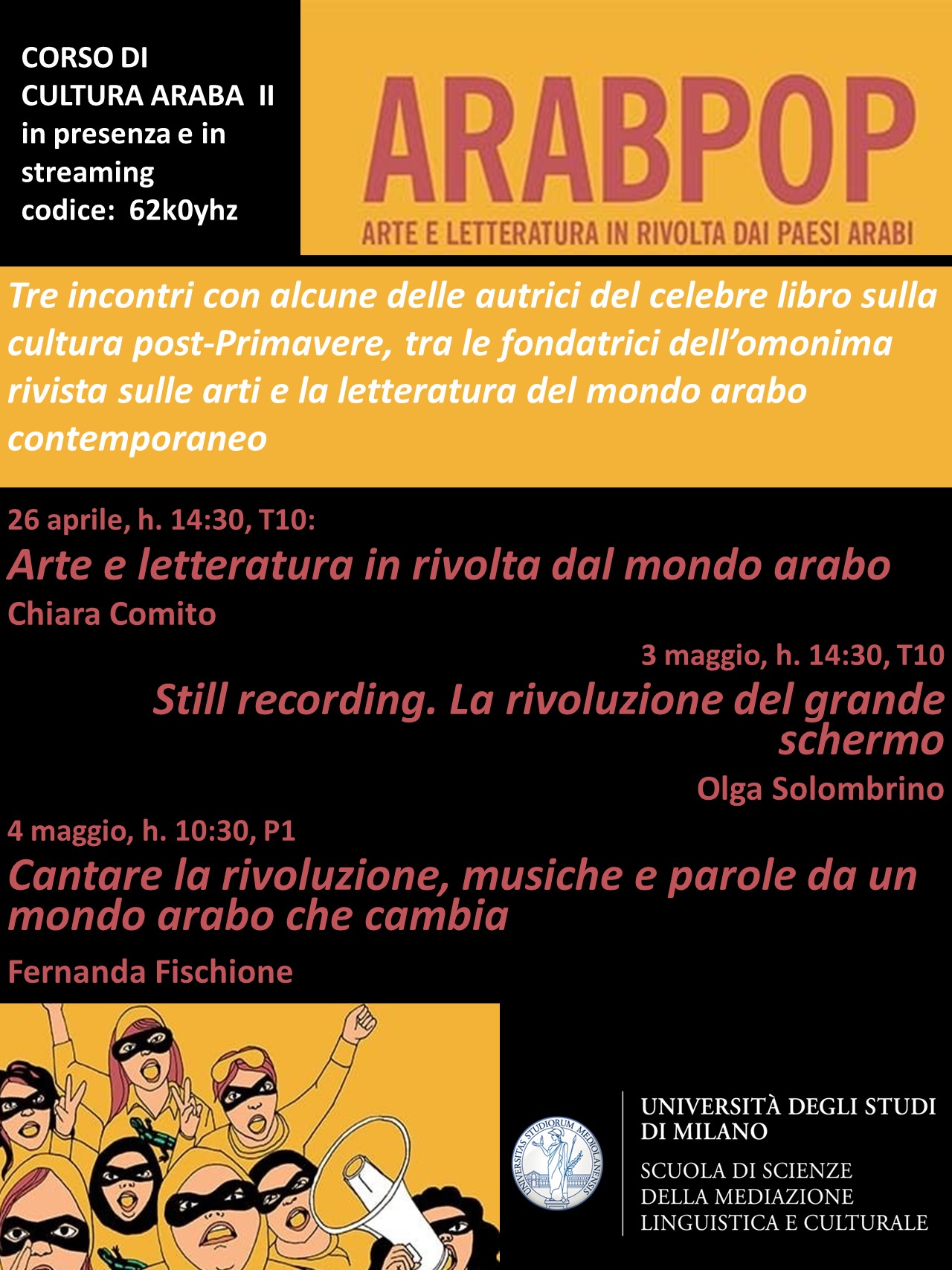
Dedica Festival Pordenone, 5-12/03/2022
Orient-arsi. Conferenza con Martina Napolitano e Fernanda Fischione.
Martedì 22 Febbraio, 18:00. Biblioteca Civica – Sala Teresina Degan, PORDENONE – piazza XX Settembre, 11
Cos’è l’Oriente e dove inizia? Nel confronto con il proprio Est, spesso immaginato e non di rado esotizzato, la cultura europea e quella italiana sono andate costruendosi nel tempo. A partire dalle coordinate del proprio Est, esse si sono progressivamente orientate e ri-orientate. Attraverso un dialogo a cavallo tra culture, arti e linguaggi, due giovani ricercatrici ci accompagnano in un viaggio tra i tanti Orienti d’Europa, da quello più settentrionale (slavo e balcanico) a quello più meridionale (mediorientale e arabo), da quello derivato da categorie culturali a quello determinato dalle congiunture politiche.
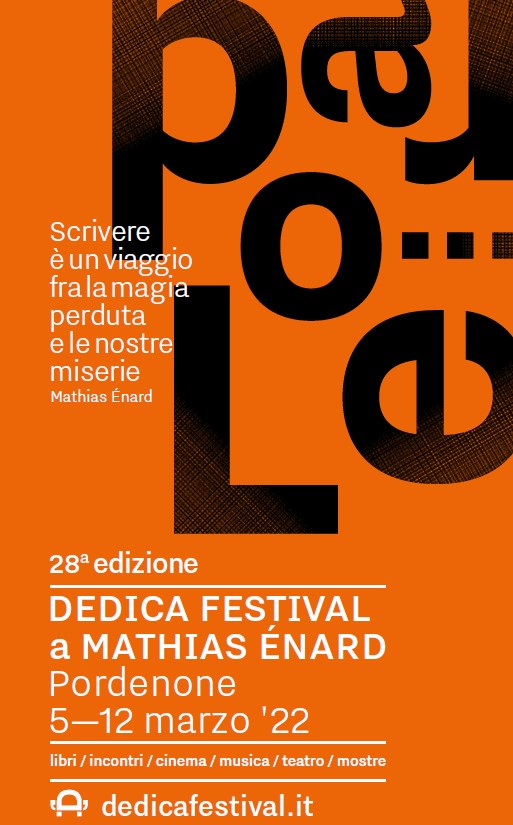
Trans/Formations of Arabic Literary Theory
Prospects and Limits
Columbia University, 14-17/12/2021, online
